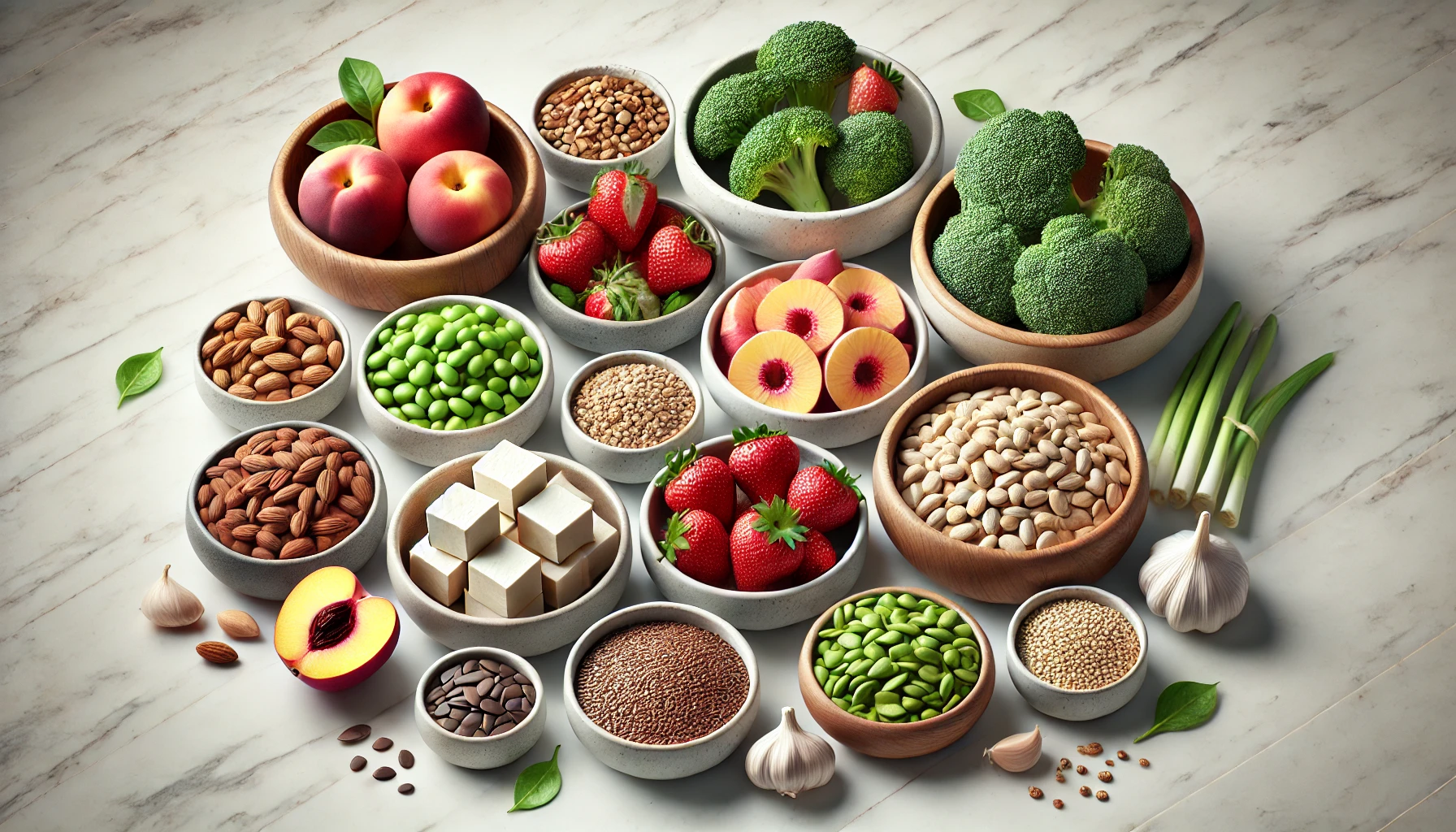Health Notice: This article was written using the Consensus AI Academic Search Engine. It is intended solely for informational purposes and should not be considered medical advice. Always consult a licensed healthcare provider for diagnosis, treatment, or medical guidance. Please refer to the full Disclaimer at the end of this article.
Incorporating foods high in estrogen, such as soy products, seaweed, and certain animal products, can have various health benefits, particularly for individuals looking to manage estrogen levels. However, the effects can vary based on individual factors and the specific type of food consumed. Further research is needed to fully understand the implications of dietary estrogens on health.
By including these estrogen-rich foods in your diet, you can potentially support hormonal balance and overall well-being. Always consult with a healthcare provider before making significant changes to your diet, especially if you have health conditions that could be affected by estrogen levels.
Estrogen is a crucial hormone in the human body, playing a significant role in the reproductive system and overall health. Certain foods are known to contain phytoestrogens, which are plant-derived compounds that mimic the function of estrogen. This article explores some of the top foods high in estrogen and their potential health benefits.
Soy Products
Soybeans and Soy Milk
Soybeans and soy milk are among the richest sources of phytoestrogens, particularly isoflavones. Studies have shown that soy consumption can influence estrogen levels in the body. For instance, a study involving premenopausal Japanese women found that a soymilk-supplemented diet led to a decrease in serum estrone and estradiol levels by 23% and 27%, respectively8. Another study indicated that soy foods could increase urinary isoflavone excretion and reduce oxidized LDL levels, suggesting cardiovascular benefits without increasing the risk for hormone-dependent cancers7.
Tofu and Soy Nuts
Tofu and soy nuts are also excellent sources of isoflavones. A randomized trial with premenopausal women consuming two servings of soy foods daily showed no significant effect on urinary estrogen metabolites but suggested a trend towards lower estrogen levels in nipple aspirate fluid1 6. Additionally, a study on postmenopausal women indicated that soy foods might have a small estrogenic effect on vaginal cytology, although the overall estrogenic response was not significant2.
Seaweed
Seaweed, particularly varieties like Alaria, has been shown to modify estrogen and phytoestrogen metabolism. A study involving postmenopausal women found that seaweed supplementation, combined with soy, increased urinary excretion of 2-hydroxyestrogen and the ratio of 2-hydroxyestrogen to 16alpha-hydroxyestrone, which are considered favorable changes in estrogen metabolism4. This suggests that seaweed could be a beneficial addition to a diet aimed at modulating estrogen levels.
Fermented Soy Products
Doenjang
Doenjang, a traditional Korean fermented soybean paste, is rich in Bacillus species and has been shown to improve symptoms of estrogen deficiency. Research on estrogen-deficient rats indicated that long-term consumption of doenjang could lower weight gain, reduce visceral fat mass, and improve gut microbiota diversity5. These findings suggest that fermented soy products like doenjang may offer additional health benefits beyond those of unfermented soy.
Animal Products
Meat and Fats
Animal products, particularly meats and fats, contain estrone, a mild estrogen. A study measuring estrone content in various foods found significant levels in fruits, meats, and fats of both plant and animal origin. The study suggested that high estrone intake from these foods could influence body weight and potentially lead to obesity3. Therefore, while animal products can be a source of dietary estrogen, their consumption should be balanced with other health considerations.
Disclaimer
The content in this blog post was generated using Consensus, an AI-powered academic search engine, and is based on publicly available scientific literature. While we strive to provide accurate, up-to-date, and well-researched information, this content is intended for informational and educational purposes only.
It does not constitute medical advice, diagnosis, or treatment. Always consult a qualified healthcare professional before making decisions related to any medical condition, treatment, or medication.
The AI system’s analysis may not account for all perspectives, ongoing research, or individual circumstances, and should not replace professional expertise. Neither the blog publisher nor the developers of the Consensus AI tool are liable for any decisions or actions taken based on this content.
Use of this information is at your own risk. Where provided, citations link to original scientific studies for reference only—these should be reviewed independently and interpreted with the support of a qualified medical or research professional.
If you are experiencing a medical emergency, please seek immediate care from a healthcare provider or call emergency services.
